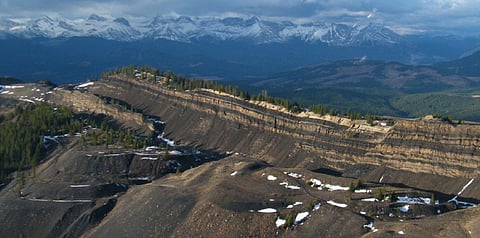

Talk about calling the kettle black.
Opposition Leader Naheed Nenshi is invoking the legacy — and ghost — of the late, great Peter Lougheed to rally opposition to coal mining on the Eastern Slopes and contrast the policies of the former Progressive Conservatives to the present UCP government.
In fact, Nenshi says Alberta’s elder statesman would be keeling over in a colliery over the UCP’s plans to allow limited metallurgical coal extraction in places like Grassy Mountain near Coleman.
Nenshi hosted a public rally along with advocacy group Crowsnest Headwaters in Calgary on Monday, where a parade of NDP supporters along with farmers and ranchers criticized efforts by the Alberta government to reform the so-called ‘Lougheed coal policy’ enacted in 1976.
“Former Premier Peter Lougheed knew then what Albertans know now: These mountains are ours, not Danielle Smith's, not the UCP's, and certainly not for coal mines,” his Purpleness told the crowd.
“He would be embarrassed to see that the MLA elected for the riding named after him is spreading conspiracy theories, denying public health measures, and actively repealing Lougheed’s own policies aimed at protecting the Eastern Slopes.”
Both Nenshi and present Alberta Premier Danielle Smith were students of Lougheed’s political science classes at the University of Calgary in the 1980s.
At the meeting, Nenshi accused the Smith government of “ripping up” the 1976 Lougheed-era coal policy that even he admitted was successful in balancing development and environmental protection.
Much of the contention is surrounding an application from Australia-based Northback Holdings to redevelop the Grassy Mountain mine site near Coleman in the Crowsnest Pass.
The area, which has been mined for almost 100 years, has sat dormant since the 1980s pending reclamation of extensive and compounded environmental damage over the years.
Energy and Minerals Minister Brian Jean raised controversy by grandfathering the proposal under existing regulations late last year.
It followed a non-binding plebiscite last November that found more than three-quarters of residents support it, citing much needed economic development and well-paid jobs for young people and First Nations.
